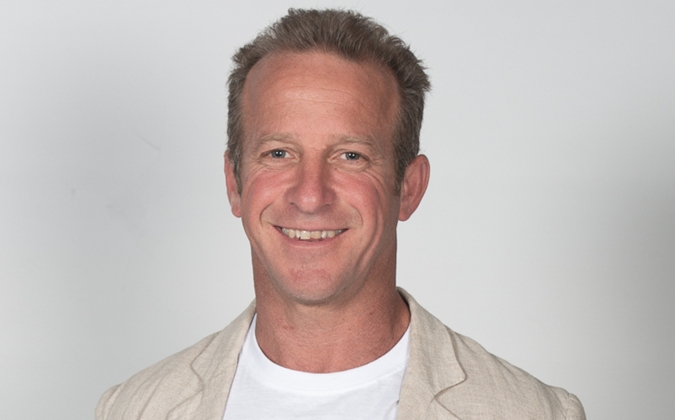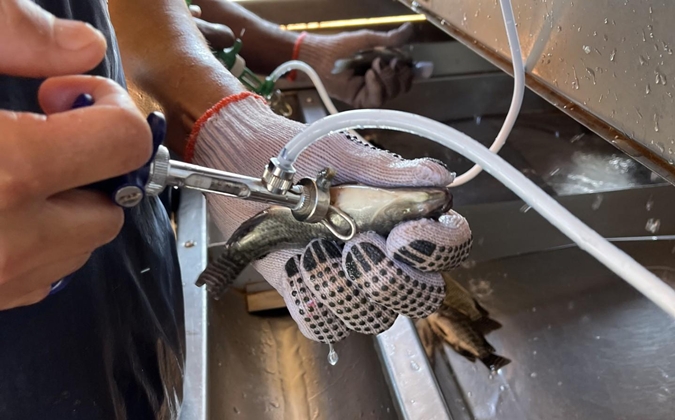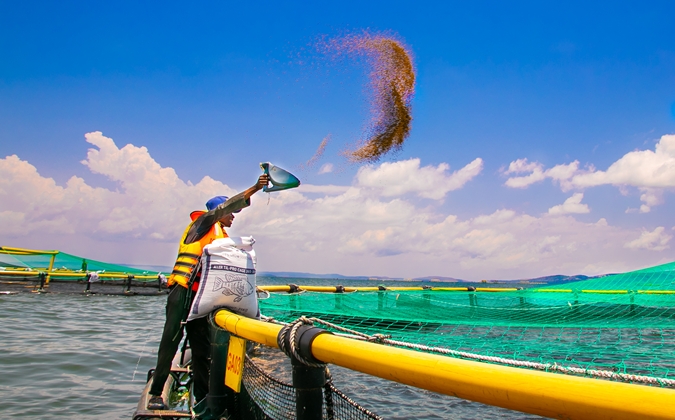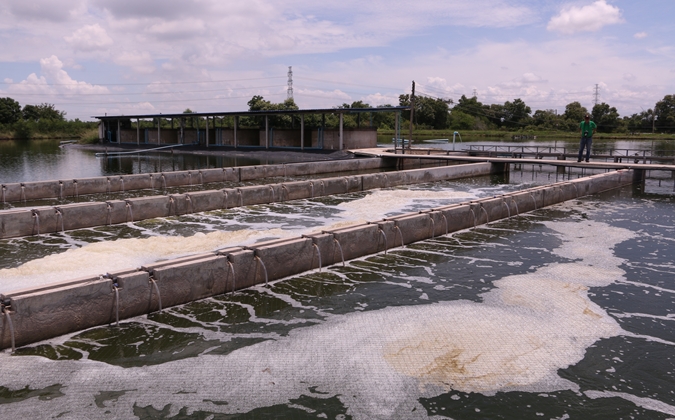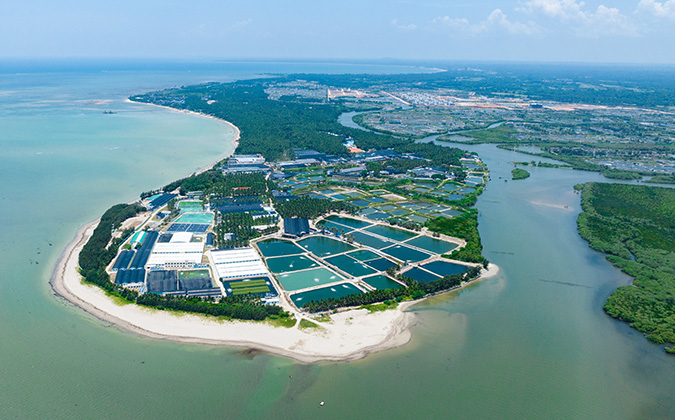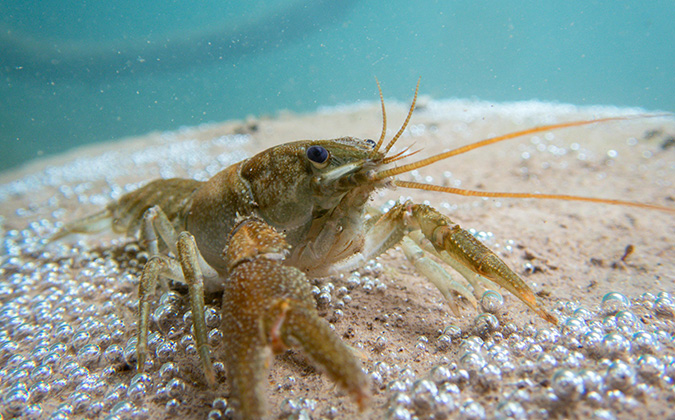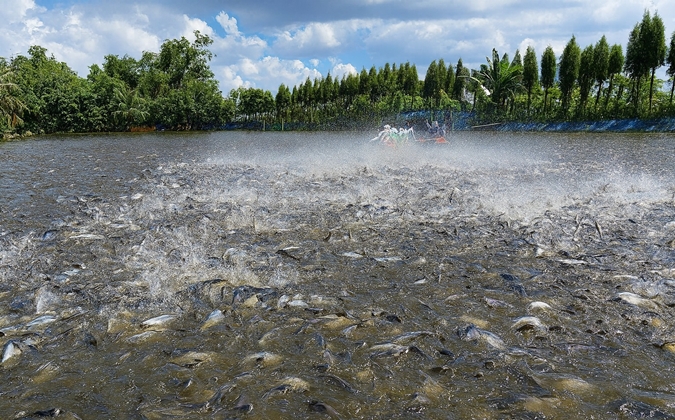
Fish Farm Forum is pleased to host this editorial page on behalf of Pharmaq.
Pharmaq
Diagnostic and research facilities bring new offering to Vietnamese pangasius industry
Pangasius production is booming, with a 7% year-on-year increase, and Vietnam remains the world leader in farming the species.1 But with continued growth comes a need for a greater emphasis on sustainability.
A significant aspect of this is effectively managing disease. Preventative methods such as vaccination are the gold standard in managing fish pathogens, and with its product for the Vietnamese pangasius industry — ALPHA JECT Panga 2 — well established, PHARMAQ, part of Zoetis, is building on its offering for the industry with new research facilities at Can Tho, in the Mekong Delta region — the heartland of pangasius production.
The site includes an expanded diagnostic laboratory and a newly built fish research facility, the latter using a recirculating aquaculture system tailored for use in the country. These complimentary offerings, partnering with contract research organization Fresh Studio, support understanding of basic epidemiology on known pangasius diseases in the Mekong Delta, as well as exploring emerging pathogens and protection options. This can help farmers make informed decisions to improve fish health. Making sure vaccines deliver on their promise is another key focus.
Getting the most from vaccination
Fish losses in the early stages of production can be very high, making this a particularly telling point to target with health interventions. Current vaccination levels in the pangasius industry stand at just 5% of around 4 billion fish, although this represents an increase over the last few years.
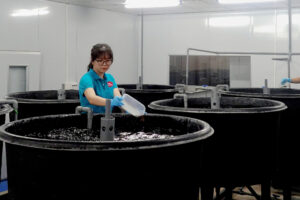 “We’re making significant progress with vaccination, and we now need to continue our innovation journey to support the pangasius industry. By combining diagnostic tools with clinical research and partnering with a professional organization such as Fresh Studio, we can maintain our focus on knowledge-based solutions and enhance our understanding of effective fish health management,” said Børge N. Fredriksen, PhD, associate director of clinical research at PHARMAQ, part of Zoetis.
“We’re making significant progress with vaccination, and we now need to continue our innovation journey to support the pangasius industry. By combining diagnostic tools with clinical research and partnering with a professional organization such as Fresh Studio, we can maintain our focus on knowledge-based solutions and enhance our understanding of effective fish health management,” said Børge N. Fredriksen, PhD, associate director of clinical research at PHARMAQ, part of Zoetis.
“We know that losses are particularly high in the early stages of production. Ensuring that fish are healthy and robust through vaccination and other measures is crucial for supporting a sustainable and profitable production cycle. Currently, we are working to understand the disease landscape using diagnostic tools and basic research, while also striving to increase the robustness and survival rate of fish at an early stage before they can be vaccinated.”
While Vietnamese fish farmers tend to have a positive opinion on vaccination, there is still considerable hesitancy.2 Positive engagement on how to get the best results could be pivotal, meaning that the company’s efforts are focused on three key points: vaccinating whole fish populations to support herd immunity, doing it before stocking to ensure disease protection as early as possible, and always vaccinating healthy fish.
The diagnostic labs’ quantitative PCR plays a crucial role, offering a quick and accurate method to inform producers’ preventative strategies. The team’s goal is to collect samples and provide results to farmers within a 2-day window, a timeline comparable to that in salmon farming and essential for supporting informed decisions.
“A strong collaboration between our technical field force, who work closely with our customers, and our researchers will ensure a short turnaround time from sampling to results,” Fredriksen said.
Supporting sustainability through the continuum of care
Antibiotics are still commonly used on Vietnamese fish farms. The new facilities will continue to support farmers in making informed decisions when medicating their stocks using antibiotic-sensitivity assays.
“We acknowledge that farming in the Mekong River presents challenges in disease prevention. Therefore, it is crucial that we support farmers not only with vaccines and vaccination expertise but also with diagnostics and technical advice on how to combat diseases most effectively when they occur,” Fredriksen said.
“We are building relationships and connecting with better tools to achieve a shared goal: advancing the pangasius industry sustainably. Basic and applied knowledge are key to this effort. By connecting to the entire production cycle and providing both tools and expertise, we aim to fulfill the continuum of care,” Fredriksen added.
Reducing unknowns on farms
Dat Nghe, R&D aquaculture manager at Vietnam’s largest pangasius producer, Vinh Hoan, says that diagnostics “orient our overall fish health strategies,” while also noting the importance of nearby facilities tuned to local realities.
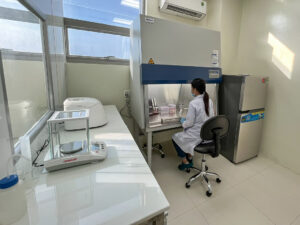 “Our fish are vulnerable and affected by numerous complex factors in the water that we cannot estimate or predict,” he said. “Local labs can simulate our fish’s practical live environment better. Therefore, it is obligatory to test new innovations in a local lab to minimize the risks as well as protect our fish well before using them on our farm.”
“Our fish are vulnerable and affected by numerous complex factors in the water that we cannot estimate or predict,” he said. “Local labs can simulate our fish’s practical live environment better. Therefore, it is obligatory to test new innovations in a local lab to minimize the risks as well as protect our fish well before using them on our farm.”
In the future, Nghe would like to see technologies introduced in the country that can predict the severity of upcoming disease outbreaks and not just the possibility of disease itself, enabling producers to make improved preparations in advance.
International expertise, local partnership
Research has shown the importance of collaboration across disciplines and sensitive community engagement to improve sustainability outcomes in Vietnam’s aquaculture sector.3 This is well underway at the new base, having formalized links with Fresh Studio, which has been operating in the Vietnam since 2006.
“PHARMAQ already had a wet lab in Vietnam and were looking to modernize it. They saw the facilities that we had and the good things that we achieved in the last couple of years, and they approached us to design, build and manage their facility,” Joe Pearce, Fresh Studio’s aquaculture project manager, explained. “It was a really good opportunity for both of us, because we now work together very closely.”
The network of collaborators has more recently widened, as part of the DeltaVax project, funded by the Netherlands Enterprise Agency. It’s based around the idea of creating an “impact cluster” of industry expertise all working toward similar aims.
As well as Fresh Studio, the consortium includes Can Tho University, De Heus, Kytos, Alpha Aqua and extension staff from Vietnam’s Ministry of Agriculture and Rural Development. The combined expertise means that a broader view of pangasius health can be addressed, looking at everything from feed and water quality to the microbiome on fish farms and, of course, diagnostics. The project is aiming to reach 750 farmers who will receive training on a range of topics from water quality to fish health. The targets for the program include some of the biggest producers of pangasius as well as small- and medium-scale farmers.
“We’ve done lots of trials and made a big difference to the production of Pangasius, increasing survival to over 50%, but we need everybody’s support. We know there’s no silver bullet,” Pearce added. “We can improve the nursery sector, but if you don’t address the water quality, vaccination rates and feed, for example, you will struggle to make improvements. DeltaVax brings it all together to achieve meaningful progress. That’s really what this project is trying to do.”
1 Food and Agriculture Organization of the United Nations. 2025. Quarterly pangasius analysis – February 2025. Rome (Italy): FAO.
2 Chambers JA, Crumlish M, Comerford DA, Phuoc L, Phuong V, O’Carroll RE. Understanding vaccine hesitancy in Vietnamese fish farmers. Antibiotics. 2022;11(7):878.
3 Li S, Ang SY, Hunter AM, Erdem S, Bostock J, Da CT, Nguyen NT, Moss A, Hope W, Howie C. Building towards one health: A transdisciplinary autoethnographic approach to understanding perceptions of sustainable aquatic foods in Vietnam. Sustainability. 2024;16(24):10865.
Posted on: November 04, 2025


